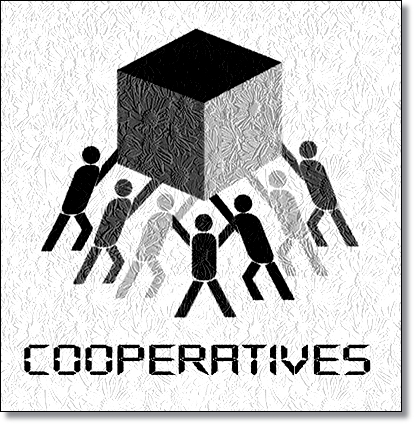Cooperatives: Are they Relevant Today?

 |
Ugandans started organizing themselves into co-operatives in 1913. Co-operatives operated informally until 1946 when the first co-operative ordinance was enacted and this marked the birth of the co-operative department and the present co-operative movement. By the end of 1946, there were 75 organizations of a cooperative nature. Fifty (50) of these were agriculture marketing societies, 8 were shopkeepers (supply) societies, 6 were consumer stores and the remainder were miscellaneous societies such as fishermen (mainly for supply of nets), cattle and dairy societies and one thrift society. The period 1946 to 1970 saw a significant growth of the co-operative movement especially in the cotton and coffee sectors. In 1951, co-operatives handled 14,300 tons of cotton and coffee. Following the acquisition of two coffee curing works and ten ginneries in 1956, the total tonnage rose to 89,308 tons by 1960. In 1965, out of 437,923 bales of cotton produced in the country, co-operatives handled 267,420 bales (61%) while they also handled 40% of the Robusta coffee. At the centre of this progress, were producers/farmers and owners of small businesses themselves making decisions.
Fast-forward to 1970s, a new crop of elites captured co-operatives and greatly mismanaged, interfered with, and alienated decision making from membership. Annual General Meetings lost meaning and interests of largely farmers were relegated. It is still the same story today. Look at the wars for supremacy and influence in Bugisu, Banyankore Kweteran, Nyakatozi cooperatives etc- elites and politicians are fighting to take charge and make quick gains – both material and political at the expense of membership. Old cooperatives are moribund and farmers don’t trust them anymore. Dealing with old cooperatives means an increase in transaction costs that cut into the profits of farmers. Most farmers are quitting old cooperatives and seeking new ways of organizing. For example, in Kasenda sub-county, Kabalore district, small-scale farmers have institutionalised informal collective marketing arrangements to increase their profits. When matooke (bananas) are ready for harvest, farmers, with their mobile phones, call relatives in Kampala and Fort Portal to check market prices. Trusted community informants circulate the information, and survey households’ expected harvest. Then they negotiate favourable large volumes and prices with buyers. The farmers bring their matooke to collection centres on designated days, where community representatives finalise negotiations and collect and distribute payments. This informal way of connecting means farmers in Kasende don’t have to pay bulking and marketing fees to the cooperative – they in the end get full market prices. Cooperatives that want to survive must understand such new realities.
Politicians and other leaders calling for the revival of cooperatives must pause and reflect. Such narratives are stale and outdated. We should support old cooperatives if they are willing to re-invent themselves to new realities or rather support emerging new ways of organizing. The Food and Agriculture Organization (FAO) seems to get the point. They now define ‘co-operatives’ very broadly: ‘any member-owned enterprise run on democratic principles…which can take other names and forms: producer organizations, self-help groups, unions and federations of producers…and [even] Chambers of agriculture’. …and ‘contract farming. Are Bugisu, Banyankole Kweterana and Nyakatozi in this new mode of thinking?
My fried Ethel Del Pozo – Vergnes of International Institute for Environment and Environment (IIED) argues that “understanding and improving the conditions under which small-scale farmers make markets work for themselves, whether in formal or informal organizations, is what lets them play their role as economic actors…….It is time to understand where farmers really are rather than where we want them to be” I agree with her. Let’s keep this debate leaping skyward.
Morrison Rwakakamba
Chief Executive Officer
Agency for Transformation (AfT)
A think and do tank based in Uganda
